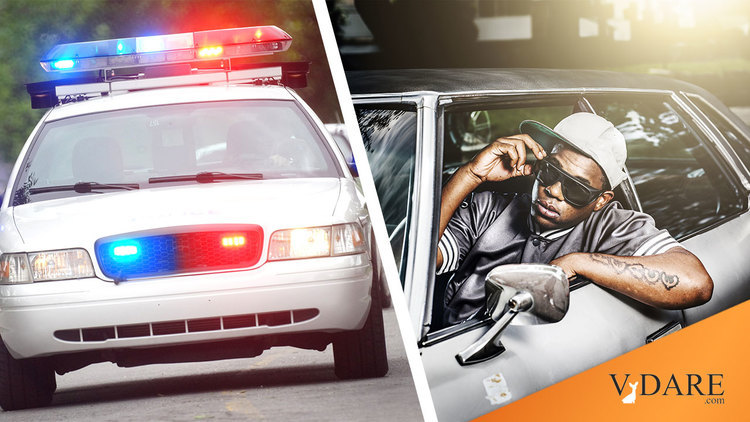


By Sam Francis
03/28/2002
Back in prehistoric times, before Sept. 11, citizens who follow the administration of the Department of Justice may recall that Attorney General John Ashcroft kept saying that his first priority was to fight racial profiling. After Sept. 11, that seemed a rather peculiar objective, but even before, with millions of illegal aliens roaming the country, it should have struck most Americans as odd.
Now we know that the commitment was even odder than it appeared, since the Justice Department, under Mr. Ashcroft’s control, has tried to cover up a major study showing that blacks violate speeding laws more than other racial groups. If the study is accurate, it might be used to justify racial profiling — maybe even justifiably.
The Washington Times reported last week that Justice in 1999 agreed with the state of New Jersey to study the race of drivers who violate state speed laws. A research group called the Pacific Institute undertook the study, which found black drivers were nearly twice as likely as whites or Hispanics to break the laws when the posted speed limit was 65 miles an hour. When the drivers' speed is more than 90 miles an hour, the violators are black even more often.
Well, now, we can’t have that busting into the newspapers over the morning coffee, can we? It’s bad enough that after all the pandering to both blacks and Hispanics in the last election, President Bush still performed miserably among voters of both groups, but now his own Justice Department is about to come out with findings that say blacks really do speed more than whites and implying that blacks getting more speeding tickets is not very surprising or even unfair.
Clearly, the study had to gurgle down to the bottom of File 13.
The gurgler-in-chief in this case was Justice Department munchkin Mark Posner, who quickly reached the convenient conclusion that the study was almost certainly flawed. "Based on the questions we have identified," Mr. Posner wrote in a letter to New Jersey officials, "it may well be that the results reported in the report are wrong or unreliable." ["Report saying blacks speed more held up," Washington Times, March 22, 2002]
Well, maybe so, but then the report was simple enough in the way it was conducted. Radar guns and high-speed cameras were used to identify the race of some 38,000 drivers on the New Jersey turnpike. Only those whose speed was 15 miles an hour above the limit were identified.
Why Mr. Posner thinks the conclusions reached may be "wrong or unreliable" we're not told.
One researcher who worked on the study, Robert Voas, doesn’t agree. "We looked at numbers, and that’s what the report shows. We're quite confident in its validity."
What we can be quite confident of is that the Justice Department, for reasons of racial politics, suppressed the study — because it wants to pose as the foe of racial profiling, because it wants to avoid the brickbats of "racism" that professional race-baiters have been smacking it with since even before it took office, and because it would really like to pick up more black votes than the pathetic and embarrassing 8 percent it won in 2000.
It’s the Bush administration that’s open to doubt as to its credibility on racial issues — not the report it refuses to publish.
New Jersey itself has an interest in seeing the truth about race differences in speeding come out. It was in New Jersey that the controversy over "racial profiling" led to the forced resignation of the chief of the New Jersey state police and the federal government’s forcing the state to adopt new policies that supposedly discouraged profiling.
But the ugly truth is not only that the Bush Justice Department is suppressing a study that ought to be published but also that policies now in place may be endangering the safety of drivers of all races.
If police ticket black drivers more than white drivers, not because they're black but because they do in fact violate speeding laws more often, then no injustice is being committed against blacks. If police, for fear of being charged with profiling, ignore speeding violators because they're black, they're letting dangerous drivers escape — and thereby endangering all drivers.
Americans have a right to know whether racial differences in speeding violations are real, and the best way to find out is to publish the study the Department intended to publish until it came up with conclusions the Department and the administration didn’t want to hear.
White police officers may have lost their careers or been punished for what could have been entirely justifiable practices, and whites as well as blacks may have lost life and limb because some black speeders were allowed to get away — so the Bush administration can preen in the next election about how its first priority was to fight a practice that may never have existed.
COPYRIGHT CREATORS SYNDICATE, INC.
March 28, 2002